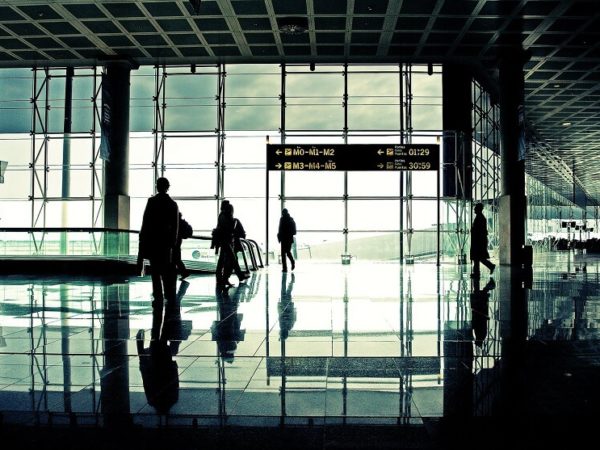A year has passed since the coronavirus pandemic first struck and the situation regarding European and world travel has done nothing but deteriorate. A few short months ago it was possible to travel abroad for a short vacation (albeit many countries had shut bars, restaurants, galleries and tourist attractions) but even this respite was short-lived. Now, in early February, the British government has declared it illegal to travel abroad for holiday or leisure purposes and only those people legally permitted may do so.
Travelling “abroad” also includes visits to Scotland, Wales, Northern Ireland and even other parts of the British mainland while British citizens returning home must now have evidence of a negative Covid-19 test which must have been carried out no more than three days prior to the date of arrival. Failure to provide the necessary test results may result in a refusal to travel by the carrier concerned and a possible fine on arrival. British nationals returning from overseas (with the exception of the Republic of Ireland) must also self-isolate for ten days. The rules for British citizens returning from one of the many countries on the United Kingdom’s travel ban list become even more strict from the 15th February with a mandatory obligation for a ten-day quarantine in a government-approved hotel.
Border Closures, Flight Bans and Restrictions
Assuming one has a valid reason and the necessary clearance to travel abroad there is a decreasing number of destinations available. Even those countries that accept flights originating from the U.K. have various measures, restrictions and conditions in place to combat the spread of coronavirus.
The current situation in the most popular European destinations and worldwide is as follows:
Austria: Flights from the United Kingdom currently banned
Belarus: Only essential travel allowed in or out. Visitors from an infected country (including Britain) must enter quarantine for ten days.
Belgium: Travel restrictions are based on the level of infection currently being recorded in the country of origin. Only essential services and shops are open and many towns operate a curfew system.
Bosnia and Herzegovina: Although officially “open” for tourism there are strict measures in place throughout the country. A negative Covid-19 test is mandatory and masks must always be worn in both indoor and outdoor public areas. Shops, restaurants and cafes are open but there is a curfew in operation from 11pm to 5am.
Bulgaria: International flights for essential travel are operating as normal but visitors must have undergone a Covid-19 test in the 72 hours preceding travel. Without this it will be necessary to enter quarantine for ten days.
Croatia: Flights from countries on Croatia’s “green list” are allowed and passengers on these flights will not have any restrictions placed upon them. Flights from Britain are currently suspended due to the new strain of coronavirus predominant in the United Kingdom.
Cyprus: Cyprus is largely open but only to travellers from either A or B categories which pertain to the level of risk attached to a country. The U.K. is in category C and British visitors cannot visit the country.
Czech Republic: Although the Czech Republic is officially open to visitors from low risk areas, subject to a Covid-19 test, there is an ongoing national state of emergency.
Denmark: Denmark is soon to introduce an exemption for foreign visitors who possess a Covid-19 vaccination certificate but is meanwhile essentially in lockdown mode with all non-essential services and shops closed. Intending visitors need to undergo a Covid-19 test in the 24 hours prior to travel.
Finland: No flights allowed from the United Kingdom, South Africa or Ireland.
France: Very tight restrictions are in place right throughout France and travellers must posses proof of a negative Covid-19 test on arrival.
Germany: Under partial lockdown, German hotels and guest houses can only cater to business travellers and not tourists. No visitors are allowed from “high risk” areas which includes the U.K and Ireland.
Greece: All tourists and visitors to Greece must present results from a negative Covid-19 test before arrival. It is also necessary to complete a Passenger Locator Form and self-isolate for a period of seven days.
Ireland: Currently under lockdown it is necessary to quarantine for fourteen days on arrival.
Italy: Similar to Ireland, Italy requires tourists to self-isolate for fourteen days in the absence of a recent negative Covid-19 test and movement throughout the country is subject to regional restrictions.
The Netherlands: A significant recent rise in Covid-19 cases has seen the Dutch government ban all but essential travel. A negative Covid-19 test result is required which must be taken immediately before departure to the Netherlands.
Closed Countries
Flights to Albania from the U.K. are banned until the end of February while travel to Iceland has been prohibited since the start of the year. Hungary is basically closed to all but Hungarian citizens while there are no flights operating from the United Kingdom or Ireland to Latvia. Portugal is only accepting visitors from low risk areas (which does not include the U.K.) and neighbouring Spain is currently refusing flights and cruise ships originating from Britain. Non-essential travel to Switzerland is not allowed due to the Covid-19 UK variant and Turkey has a total ban on UK flights in place for the same reason.
World Wide
It is, of course, not just European countries that have been forced into these necessary measures to combat coronavirus. The United States has imposed a ban on non-essential travel from the United Kingdom, Ireland and most European countries while visitors to Canada require a negative Covid-19 test and must isolate for a fortnight on arrival.
On the other side of the world, only citizens, those with permanent residency or exceptional reasons are permitted entry to New Zealand and Australia.




